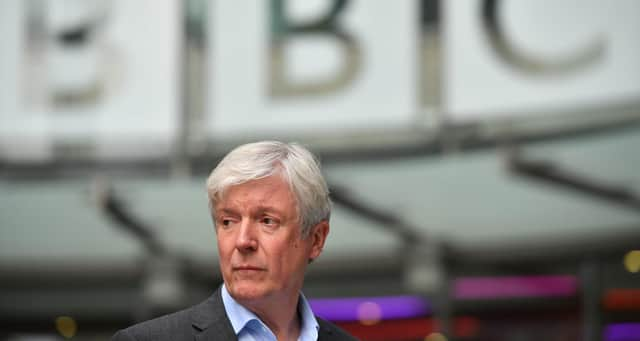Princess Diana BBC scandal: Will Diana bury the myth of the virtuous BBC?
This article contains affiliate links. We may earn a small commission on items purchased through this article, but that does not affect our editorial judgement.


When last did an editor of a red-top national newspaper appear on the BBC’s Desert Island Discs? Perhaps never.
The BBC has an entrenched view of life that it has forever imposed on the British taxpayers who pay for it through the TV licence fee.
Advertisement
Hide AdAdvertisement
Hide AdOne of the manifestations of this is its arrogant and contradictory attitude. The BBC values and promotes its popular entertainers and yet looks down its nose at readers of The Sun and The Star, the very people who enjoy such programming.
In the minds of the BBC and its 20,000 employees, these newspapers and their editors are badly behaved on a daily basis and the Corporation has never missed an opportunity to sneer. At the same time, the BBC steals stories from the tabloids, self-righteously regurgitating them on its own news bulletins.
It now turns out that the BBC has engaged in much worse behaviour than any popular newspaper. And true to form, it covered up its abuse of Princess Diana for 25 years.
The BBC has developed a myth that it is the high priest of accurate objective journalism and bestows on all its mediocre programmes the same sanctity associated with Sir David Attenborough.
Advertisement
Hide AdAdvertisement
Hide AdThe Princess Diana interview scandal should be enough to explode this myth once and for all.
The warning signs have popped up periodically - guilty Jimmy Savile, protected by the BBC, innocent Cliff Richard persecuted by the BBC, and other lives tarnished through deceitful or opinionated reporting.
All these instances are the consequence of having too much power, of the BBC being a law unto itself because it does not have to worry about its income, thanks to a forced tax.
This virtually unregulated institution uses the myth of being a national treasure to justify the TV licence fee. It has a monopoly on news that would be curtailed by competition law and regulators in any other sector.
Advertisement
Hide AdAdvertisement
Hide AdFrom beyond the grave, Diana has exposed the BBC and its rotten culture.
Its increasingly desperate attempts to guarantee the survival of that culture are condescending, for instance on ‘connecting more’ with the regions and nations: in effect, Auntie knows what’s best for us plebs north of Hampstead.
What the nations and regions deserve is cultural and creative devolution - the opportunity and funds to develop media and entertainment content themselves without the help of a bunch of London-based elitists.
Government must end the undemocratic TV tax and find a better way to subsidise content than pouring it all down the deceitful throat of the culturally bankrupt BBC.
Advertisement
Hide AdAdvertisement
Hide AdIf Diana had survived - avoiding that chain of events prompted by the BBC interview - she might in her dotage have enjoyed its sleep-inducing property, sewing and cookery shows.
We should be grateful that instead Diana’s legacy is that she has brought this bent and spent institution to its knees.
David Montgomery is the chairman and editor-in-chief of JPI Media
A message from the editor:
Thank you for reading. NationalWorld is a new national news brand, produced by a team of journalists, editors, video producers and designers who live and work across the UK. Find out more about who’s who in the team, and our editorial values. We want to start a community among our readers, so please follow us on Facebook, Twitter and Instagram, and keep the conversation going.
